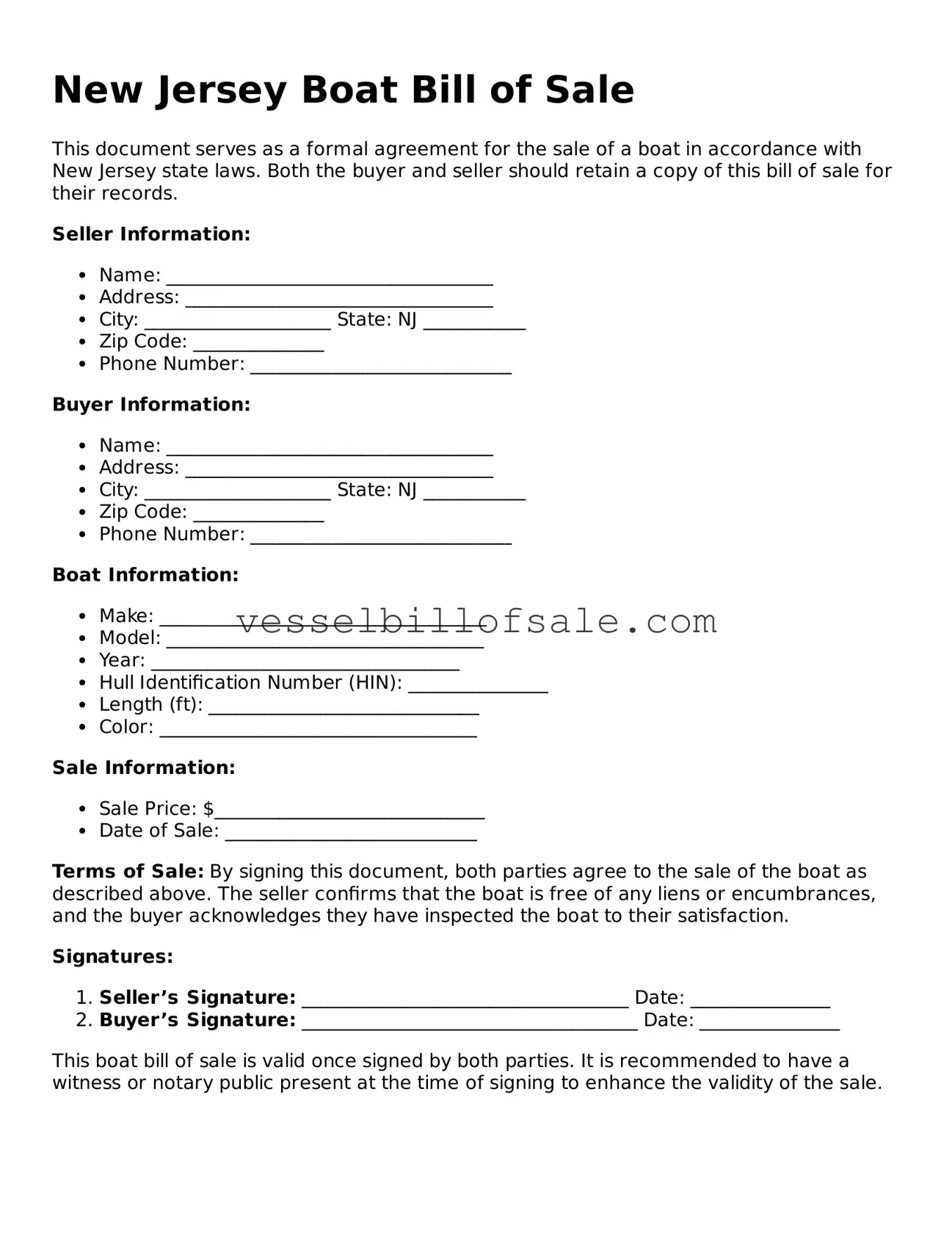Key takeaways
When filling out and using the New Jersey Boat Bill of Sale form, consider the following key takeaways:
- Identify the Parties: Clearly list the names and addresses of both the seller and the buyer to establish ownership transfer.
- Provide Boat Details: Include specific information about the boat, such as make, model, year, and hull identification number (HIN).
- Purchase Price: State the agreed-upon purchase price to document the transaction value.
- Signatures Required: Both the seller and buyer must sign the form to validate the sale.
- Date of Sale: Include the date when the sale takes place, which is important for record-keeping.
- Notarization: While not always required, having the document notarized can add an extra layer of authenticity.
- Keep Copies: Both parties should retain a copy of the completed Bill of Sale for their records.
- Transfer of Title: Ensure that the title transfer process is initiated, as the Bill of Sale is not a title itself.
- Check Local Regulations: Be aware of any additional requirements or regulations specific to your county or municipality.
- Use for Registration: The Bill of Sale may be needed when registering the boat with the New Jersey Division of Motor Vehicles.
